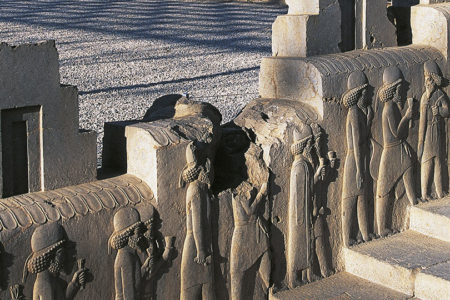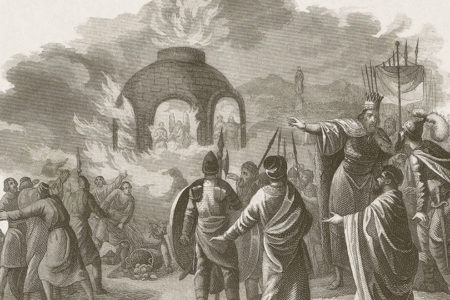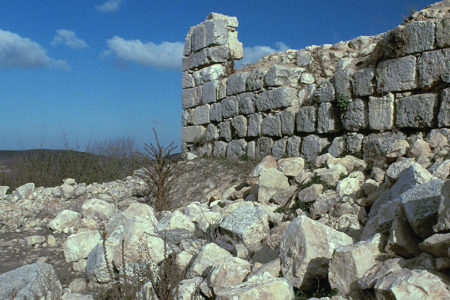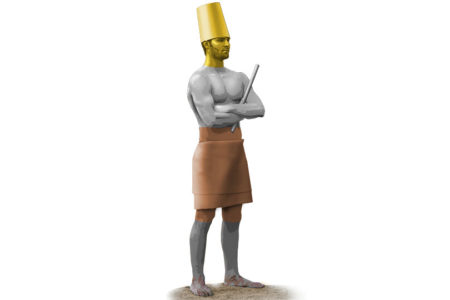Eye on the Middle East Jul/Aug 2009
We hear much talk these days about carrots and sticks. Should U.S. intelligence officers attempting to pry information from captured terrorists use physical methods or persuasive conversation to convince the bad guys to come clean? One certainty is that our enemies will never join the game of “a smile for your thoughts.”
Fact is, there are some rewards for backing up so-called carrots with sticks when the survival and safety of innocent people are at stake. In 1990, for instance, the Iraqi megalomaniac, Saddam Hussein, was on the loose in the Middle East, terrifying his own people and heralding himself as the new Nebuchadnezzar. In their vitriolic denial of the positive accomplishments that have resulted from the liberation of Iraq, liberals have virtually forgotten how the Iraqi dictator ravaged Kuwait.
Saddam Hussein trumped up charges against his neighbor as an excuse to invade the country with a vengeance and occupy it for seven dreadful months. And while diplomacy and UN resolutions could not dissuade him to leave, U.S.-led military action spoke a language Mr. Hussein understood.
How can anyone forget the dramatic news footage of smoke and flame blackening the skies above Kuwait’s oil fields? Iraqi forces had torched the fields while retreating, as coalition troops drove them out and freed the country. But hostilities broke out again. In 2003 coalition troops invaded Iraq, and the eventual cost of Saddam’s belligerence and defeat in what he termed “the mother of all wars” would be his extraction from a hole in the ground where he was hiding. Full recompense for his folly was an appointment with the hangman in 2006.
Hussein’s big mistake was misinterpreting what the West was willing to do when the only viable action was to take the advice of famous American activist Teddy Roosevelt and apply the “big stick.”
Now a tangible reward has surfaced. For the first time, a candidate for the Kuwaiti parliament has publicly called for the Gulf state to establish full diplomatic relations with Israel. “Israel,” said journalist Saleh Bahman, “is a reality and has international influence….Kuwait would benefit from Israel’s influence if we establish relations with them.” Furthermore, relations between Kuwait and Israel would improve the oil-rich country’s standing in the West.
So far, Kuwait has steadfastly refused to end its boycott of Israel, and some lawmakers there want harsher penalties for dealing with Israel. Nevertheless, Saleh Bahman was allowed to speak up. Had America and its allies not rescued the Kuwaitis, Saddam Hussein would have continued his quest for superior military arms that he would have used to intimidate and conquer other states in the region. And as we should have learned by now, trouble in the Middle East ultimately means trouble for us all.
Israel’s defense and stability are indispensible. They form the lynchpin holding together hopes for freedom and some form of democracy in the region. The Jewish State of Israel represents hope and change for people too long under the fist of the planet’s most despotic elements. This is one reason why so many of its enemies would like to see Israel collapse. And if it takes a “big stick” to assure Israel does not collapse, that’s the way it must be. It’s a component in the command to pray for the peace of Jerusalem.







